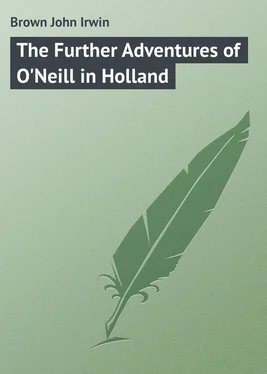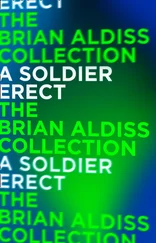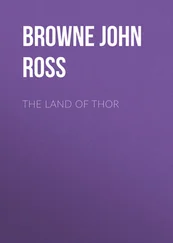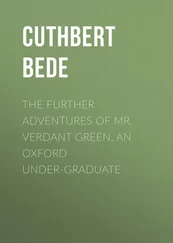John Brown - The Further Adventures of O'Neill in Holland
Здесь есть возможность читать онлайн «John Brown - The Further Adventures of O'Neill in Holland» — ознакомительный отрывок электронной книги совершенно бесплатно, а после прочтения отрывка купить полную версию. В некоторых случаях можно слушать аудио, скачать через торрент в формате fb2 и присутствует краткое содержание. Издательство: Иностранный паблик, Жанр: foreign_prose, foreign_humor, на английском языке. Описание произведения, (предисловие) а так же отзывы посетителей доступны на портале библиотеки ЛибКат.
- Название:The Further Adventures of O'Neill in Holland
- Автор:
- Издательство:Иностранный паблик
- Жанр:
- Год:неизвестен
- ISBN:нет данных
- Рейтинг книги:4 / 5. Голосов: 1
-
Избранное:Добавить в избранное
- Отзывы:
-
Ваша оценка:
- 80
- 1
- 2
- 3
- 4
- 5
The Further Adventures of O'Neill in Holland: краткое содержание, описание и аннотация
Предлагаем к чтению аннотацию, описание, краткое содержание или предисловие (зависит от того, что написал сам автор книги «The Further Adventures of O'Neill in Holland»). Если вы не нашли необходимую информацию о книге — напишите в комментариях, мы постараемся отыскать её.
The Further Adventures of O'Neill in Holland — читать онлайн ознакомительный отрывок
Ниже представлен текст книги, разбитый по страницам. Система сохранения места последней прочитанной страницы, позволяет с удобством читать онлайн бесплатно книгу «The Further Adventures of O'Neill in Holland», без необходимости каждый раз заново искать на чём Вы остановились. Поставьте закладку, и сможете в любой момент перейти на страницу, на которой закончили чтение.
Интервал:
Закладка:
The two former classes will help you with the pronunciation, or with Het.
From the latter you get idioms.
CHAPTER IV
AN INTERLUDE AND AN APPLICATION
“So our friend Jack had to ask always for the sounds of the words. That would be right good for him,” said Bart, “and should have made his talk intelligible.”
“Well of course it did,” said O’Neill. “They always understood the wordsI used. It was the applications I made that hampered them.
“I had great trouble with a chatty old gentleman in the tram one morning going down to Scheveningen. It was just seven – I was hurrying to get an early dip, and he seemed bent on the same errand.
Attracted by my blazer and towel he opened conversation about sea-bathing, and then proceeded to discourse on the beauties of the landscape. He seemed chilled by the poverty of my adjectives, though I worked them vigorously.
“Deze weg vin je zeker wel mooi?” he said at last, looking up at the arched green overhead. “Of houd U niet van de natuur?”
“Ja, zeker wel!” I hastened to assure him. “Ik houd er erg van – Het is prachtig! Net een tunnel van geboomte – van loofgroen.”
Then observing the pleasure my encomiums gave him, I ventured on something a little more lofty and poetic. My landlady had occasionally talked about a “canopy,” which, so far as I had understood her, I took to mean the vast cupola of hangings over the old-fashioned bed in my lodging. She used to say that the canopy was new and beautiful, and needed constant dusting.
I had always agreed to this, but never dreamt of hunting up a word that to all intents and purposes seemed the same as in English.
“Indrukwekkend schoon,” I added. “Wij zitten, als het ware, onder een canopey (that was my landlady’s pronunciation) van bladeren.”
“Een kanapé, mijnheer?”
“Ja,” said I, “een verheven canopy, niet waar?
Wij zeilen onder een groene canopy – verbazend – magnifique!”
“Hoe bedoelt U dat?” said the old gentleman more and more puzzled, and determined to find out my meaning.
“Wij zitten hier, niet waar?” I began slowly; then pointing to the roof of green over our heads, I explained: “dat alles vormt een prachtige canopy boven ons heen. Zeker wel?”
“Ik geloof het niet”, said the chatty old gentleman. “De tram gelijkt ook niet op een kanapé; of meent U dat?”
“De tram niet,” I exclaimed, “maar de boomen; kijk; het gebladerte, het geboomte en de hooge dak dat ze maken – dat alles zoo schitterend groen, dat is, mijns bedunkens, niets dan een canopy, uitgehangen zoo te spreken, over ons heen, in uitgestrekte schoonheid.”
The old gentleman surely was a little dull. He said, “Ik begrijp niet goed wat u zegt. Waar is de canapé? Of bedoelt U soms een badstoel – op het strand?”
“Nee”, I answered with a deprecating smile; “Ik sprak maar poetisch. Verheven”, I added with a wave of my towel towards the greenery overhead.
“Hé,” said he with friendly interest, “bent U een dichter? Ik had U voor een schilder gehouden,” he explained with a glance at my blazer.
“Ik – een dichter!” I returned modestly. “Neen; niet erg. Op een kleine schaal, misschien.” On a small scale, I meant to say; but I must have mangled the schbadly, for he didn’t catch the point, and I heard him mutter: “Een sjaal! een sjaal, EN een kanapé!!”
“Ja zeker, mijnheer,” I reasoned; “U ziet het zelf voor U – daar onder de boomen – dat IS hier een canopy – ”
“Pardon”, he interrupted, “dat is niet waar. Dat zijn gewone houten banken,” he persisted argumentatively. “En wat bedoelt U met een sjaal?”
How pertinacious the old gentleman was! He stuck to me like a leech. I couldn’t shake him off; and we were still far off the Kurhaus.
It was clearly a case for Boyton’s conversational method.
“Mejuffrouw!” I said firmly, leaning towards him, “Ik ken Uwe edelmoedigheid genoeg. Maar” – and here I added two nice little local idioms from the rich stores of my memory – “maar – U komt pas te kijken.”
That told him he wasn’t looking at the matter in true philosophic perspective.
But this I followed up, in a more authoritative way, with the assurance that I didn’t at all agree with him. “Waarempeltjes,” I whispered with elaborate distinctness, “ik heb het land aan je!”
The chatty old gentleman got off at the next halte.
CHAPTER V
THE ‘COMPENDIOUS GUIDE’ ON DUTCH SYNTAX
Boyton’s monograph on pronunciation is his finest piece of work. He never quite reaches that level elsewhere; and, if he is destined after a hundred and fifty years to achieve a name, it had better rest on his ‘Doctrine of the Native’ than on his Syntax.
So van Dam assured us, when our little party met in his room the week before Christmas.
We had all been busy; but busy or not, the Cape men found time to skim over Boyton’s entertaining paragraphs, as, indeed, we guessed, from the frequent guffaws and readings that reached us from time to time through the closed doors. To night we had accepted an invitation to supper, before the holidays; and we were to hear his views on O’Neill’s ‘Guide, Philosopher and Friend’, Boyton, – in other words the ‘Wegwijzer tot de nederduitsche taal’ . Long since Jack had, indeed, got other and more modern manuals of Dutch, so that he was supposed to look now with a certain contempt on his former monitor: but the “compendious guide” had laid the basis of his erudition, and he had still a sneaking regard for its honest old pages.
What we wanted, indeed, was stories from Jack himself: but we had exhausted the more dramatic of these; and to get the fine aroma of the others – there were still many others – we thought some acquaintance with the compendium’s syntax was essential.
Van Dam had undertaken to put us up to any niceties he had been struck with.
The first thing he told us was that Boyton had no clear ideas of any sort, and never laid down any definite rule. This lent him a certain diffidence in regard to most points, – a diffidence which in the case of HET became positive fright. At the first mention of de, het, and an adjective, he gives as much encouragement as he can.
It is not much.
An insurmountable Difficulty for the Englischman is the right use of the Particles, especially het. Sufficient rules cannot be given, E. g. het mooie kind: eene sterke vrouw, een zwart schip.
This is certain, that all Nouns, to which the Particles, het, dat, or dit, are added are of the Neuter Gender; on this account, the e final, in the Adjectives, when joined with such words, is, generally, rejected.
Even this rule admits of an exception. E. G. It is never said: een snel vogel: de groote paard. But it is correct to say, if the meaning admits it, een groote man. (also groot.) A native may be consulted with advantage.
When Boyton is labouring under strong emotion, the effect is always to increase the number of commas, colons, and other stops.
His agitation may also be traced in the way he harks back to any fundamental rule that he has already discussed ad nauseam.
It is quite pathetic to note how he urges on his readers to reserve their dezen and dien and den for the accusative.
Читать дальшеИнтервал:
Закладка:
Похожие книги на «The Further Adventures of O'Neill in Holland»
Представляем Вашему вниманию похожие книги на «The Further Adventures of O'Neill in Holland» списком для выбора. Мы отобрали схожую по названию и смыслу литературу в надежде предоставить читателям больше вариантов отыскать новые, интересные, ещё непрочитанные произведения.
Обсуждение, отзывы о книге «The Further Adventures of O'Neill in Holland» и просто собственные мнения читателей. Оставьте ваши комментарии, напишите, что Вы думаете о произведении, его смысле или главных героях. Укажите что конкретно понравилось, а что нет, и почему Вы так считаете.











